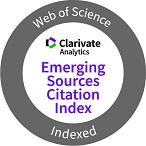Should banks be averse to elections? A GMM analysis of recent elections in Ghana
Keywords:
Profitability, Ghana, Banks, Political institutions, Elections, General method of moments (GMMAbstract
Purpose. Actions of incumbent politicians and firms’ managers during election years have been cited as sources of many problems that afflict economies and business entities. Given the controversies surrounding the impact of elections on firms’ soundness, this paper poses a question of whether banks should be averse to elections. Specifically, this study aims to investigate the impact of elections on the profitability and efficiency of banks.
Design/methodology/approach. Based on the authors’ knowledge, this is maiden analysis in this context for Ghana where relatively advanced appropriate GMM technique has been used on annual data from 2012 to 2016.
Findings. This study reveals that banks make higher returns in election years. Additionally, the authors report that government’s economic policies in election years are detrimental to management efficiency, though insignificant.
Practical implications. From an emerging economy perspective, this study would guide policymakers in designing policies that respond to, or minimize, the impact of elections on bank performance. The result of this analysis would also substantiate the market reaction to the changes in the economic, political and financial conditions.
Originality/value. This analysis suggests that firms’ performances in an election year depend on policies and political institutions in place. The authors argue that Ghana, with its exemplary democratic credentials and strong institutions, living alongside a high perception of corruption, is different. The contribution to literature is, first, by limiting this work to the banking sector of Ghana and, second, by incorporating the behaviors of incumbent governments and individuals in the regression specification model.
Downloads
References
Agbloyor, E.K., Abor, J., Adjasi, C.K.D. and Yawson, A. (2013), “Exploring the causality links between financial markets and foreign direct investment in Africa”, Research in International Business and Finance, Vol. 28, pp. 118-134.
Agyei‐Sasu, F. and Anaman, K.A. (2012), “Impact of democratic political transition on the performance of business firms in Ghana”, Economic Papers: A Journal of Applied Economics and Policy, Vol. 31 No. 3, pp. 391-400.
Akitoby, B. and Stratmann, T. (2010), “The value of institutions for financial markets: evidence from emerging markets”, Review of World Economics, Vol. 146 No. 4, pp. 781-797.
Alpanda, S. and Honig, A. (2010), “Political monetary cycles and a de facto ranking of central bank independence”, Journal of International Money and Finance, Vol. 29 No. 6, pp. 1003-1023.
Arellano, M. and Bond, S. (1991), “Some tests of specification for panel data: Monte Carlo evidence and an application to employment equations”, The Review of Economic Studies, Vol. 58 No. 2, pp. 277-297.
Baum, C.F., Caglayan, M. and Talavera, O. (2010), “Parliamentary election cycles and the Turkish banking sector”, Journal of Banking and Finance, Vol. 34 No. 11, pp. 2709-2719.
Belo, F., Gala, V.D. and Li, J. (2013), “Government spending, political cycles, and the cross section of stock returns”, Journal of Financial Economics, Vol. 107 No. 2, pp. 305-324.
Bertrand, M., Kramarz, F., Schoar, A. and Thesmar, D. (2007), “Politicians, firms and the political business cycle: evidence from France”, Unpublished working Paper University of Chicago.
Bitar, M., Hassan, M.K. and Walker, T. (2017), “Political systems and the financial soundness of islamic banks”, Journal of Financial Stability, Vol. 31, pp. 18-44.
Chen, P.F. and Liu, P.C. (2013), “Bank ownership, performance, and the politics: evidence from Taiwan”, Economic Modelling, Vol. 31, pp. 578-585.
Claessens, S., Feijen, E. and Laeven, L. (2006), “Political connections and preferential access to finance: the role of campaign contributions”, Journal of Financial Economics, Vol. 88 No. 3, pp. 554-580.
Cole, S. (2009), “Fixing market failures or fixing elections? Agricultural credit in India”, American Economic Journal: Applied Economics, Vol. 1 No. 1, pp. 219-250.
Davidson, R. and MacKinnon, J.G. (2004), Econometric Theory and Methods, Oxford University Press New York, NY, Vol. 5.
Dreher, A. (2003), “The influence of elections on IMF programme interruptions”, The Journal of Development Studies, Vol. 39 No. 6, pp. 101-120.
Ha, E. and Kang, M.K. (2015), “Government policy responses to financial crises: identifying patterns and policy origins in developing countries”, World Development, Vol. 68, pp. 264-281.
Haggard, S. and Mo, J. (2000), “The political economy of the Korean financial crisis”, Review of International Political Economy, Vol. 7 No. 2, pp. 197-218.
Lehrer, N.D. (2018), “The value of political connections in a multiparty parliamentary democracy: evidence from the 2015 elections in Israel”, European Journal of Political Economy, Vol. 53, pp. 13-58.
Muttakin, M.B., Monem, R.M., Khan, A. and Subramaniam, N. (2015), “Family firms, firm performance and political connections: evidence from Bangladesh”, Journal of Contemporary Accounting and Economics, Vol. 11 No. 3, pp. 215-230.
Osabutey, E. (2017), “GCB bank rebrands premises of two defunct banks”, available at: www.myjoyonline.com/business/2017/August-14th/gcb-bank-rebrands-collapsed-ut-capital-banks.php (accessed 19 December 2017).
Party, N.P. (1993), “The stolen verdict: Ghana, November 1992 presidential election: report of the New Patriotic Party”, The Party.
Roodman, D. (2009), “A note on the theme of too many instruments”, Oxford Bulletin of Economics and Statistics, Vol. 71 No. 1, pp. 135-158.
Windmeijer, F. (2005), “A finite sample correction for the variance of linear efficient two-step GMM estimators”, Journal of Econometrics, Vol. 126 No. 1, pp. 25-51.
Yalta, A.Y. and Yalta, A.T. (2012), “Does financial liberalization decrease capital flight? A panel causality analysis”, International Review of Economics and Finance, Vol. 22 No. 1, pp. 92-100.
Downloads
Published
How to Cite
Issue
Section
License
Copyright (c) 2021 Journal of Economics, Finance and Administrative Science

This work is licensed under a Creative Commons Attribution 4.0 International License.











